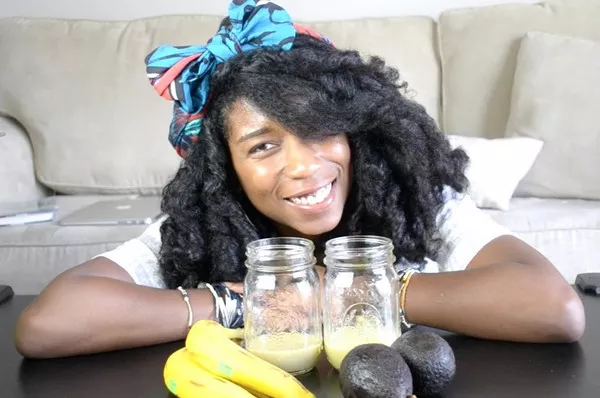Healthy, lustrous hair is not just a matter of genetics; it’s also heavily influenced by your diet and overall nutrition. To achieve the glossy, vibrant locks you desire, it’s essential to fuel your body with the right nutrients. In this comprehensive guide, we’ll explore essential nutrients for healthy hair, specific foods to promote hair health, eating habits to support your locks, strategies for solving nutritional deficiencies, and how individual differences play a role in hair health.
Essential Nutrients for Healthy Hair
Protein: Hair is primarily composed of protein, making it essential for hair growth and strength. Include sources of high-quality protein in your diet such as lean meats, poultry, fish, eggs, dairy products, legumes, nuts, and seeds.
Iron: Iron deficiency can lead to hair loss and dull, brittle hair. Incorporate iron-rich foods into your diet such as lean red meat, poultry, fish, lentils, beans, tofu, spinach, and fortified cereals.
Omega-3 Fatty Acids: Omega-3 fatty acids nourish the scalp and promote hair growth. Include sources of omega-3s such as fatty fish (salmon, mackerel, sardines), flaxseeds, chia seeds, walnuts, and hemp seeds in your diet.
Vitamin A: Vitamin A helps produce sebum, which moisturizes the scalp and keeps hair healthy. Include foods rich in vitamin A such as sweet potatoes, carrots, spinach, kale, and broccoli.
Vitamin C: Vitamin C is essential for collagen production, which strengthens hair and prevents breakage. Enjoy vitamin C-rich foods such as citrus fruits, strawberries, kiwi, bell peppers, and tomatoes.
Vitamin E: Vitamin E protects hair from oxidative stress and promotes blood circulation to the scalp. Include sources of vitamin E such as almonds, sunflower seeds, avocados, spinach, and Swiss chard in your diet.
Biotin: Biotin is known as the “hair vitamin” and supports healthy hair growth. Incorporate biotin-rich foods such as eggs, nuts, seeds, whole grains, and bananas into your diet.
Specific Foods to Promote Healthy Hair
Salmon: Rich in omega-3 fatty acids, salmon nourishes the scalp and promotes shiny, healthy hair.
Spinach: Packed with iron, vitamins A and C, and folate, spinach promotes scalp health and stimulates hair growth.
Greek Yogurt: High in protein and vitamin B5 (pantothenic acid), Greek yogurt strengthens hair follicles and prevents hair loss.
Eggs: Eggs are a rich source of protein, biotin, and iron, essential nutrients for healthy hair growth and strength.
Sweet Potatoes: Loaded with beta-carotene, sweet potatoes promote scalp health and stimulate hair growth.
Avocado: Rich in vitamin E and healthy fats, avocado moisturizes the scalp and prevents dry, brittle hair.
Berries: Berries are packed with antioxidants and vitamin C, which protect hair follicles from damage and promote hair growth.
Eating Habits for Healthy Hair
Stay Hydrated: Drink plenty of water to keep your body and hair hydrated. Dehydration can lead to dry, brittle hair and scalp issues.
Balance Your Diet: Aim for a balanced diet rich in fruits, vegetables, lean proteins, whole grains, and healthy fats to provide your hair with the nutrients it needs to thrive.
Limit Processed Foods: Minimize your intake of processed foods, sugary snacks, and fast food, which can contribute to inflammation and negatively impact hair health.
Practice Portion Control: Maintain portion control to ensure you’re getting the right balance of nutrients without overeating, which can lead to weight gain and potential nutrient imbalances.
Eat Regularly: Don’t skip meals, as this can deprive your body of essential nutrients needed for healthy hair growth. Aim for regular, balanced meals and snacks throughout the day.
Solving Nutritional Deficiencies
Consult a Healthcare Professional: If you suspect you have nutritional deficiencies affecting your hair health, consult a healthcare professional for guidance and testing.
Consider Supplements: In some cases, dietary supplements may be necessary to address specific nutrient deficiencies. Talk to your healthcare provider before starting any new supplements.
Focus on Whole Foods: Whenever possible, focus on obtaining nutrients from whole foods rather than relying solely on supplements, as whole foods contain a complex array of nutrients that work synergistically for optimal health.
Monitor Your Progress: Keep track of any changes in your hair health as you address nutritional deficiencies, and adjust your diet and supplement regimen as needed based on your results.
Be Patient: It takes time for nutritional changes to positively impact hair health, so be patient and consistent in your efforts to improve your diet and overall nutrition.
Individual Differences: Tailoring Your Approach
Genetics: Genetics play a significant role in hair health and growth patterns. While nutrition can influence hair health, it’s important to understand that genetic factors also contribute to individual differences in hair texture, thickness, and growth rate.
Hormonal Factors: Hormonal fluctuations can affect hair health, particularly in women. Factors such as pregnancy, menopause, and hormonal imbalances can impact hair growth and texture.
Age: As we age, changes in hormone levels and metabolism can affect hair health and growth. It’s important to adjust your diet and lifestyle to support healthy hair as you age.
Underlying Health Conditions: Certain underlying health conditions can impact hair health and growth. Conditions such as thyroid disorders, autoimmune diseases, and nutritional deficiencies may require medical treatment to address hair-related symptoms.
Stress Levels: Chronic stress can negatively impact hair health and contribute to hair loss. Practicing stress-reducing techniques such as mindfulness, meditation, and relaxation exercises can help promote healthy hair growth.
Conclusion: Feed Your Hair From Within
In conclusion, achieving healthy, vibrant hair starts from within by nourishing your body with the right nutrients. By incorporating essential nutrients for healthy hair into your diet, focusing on specific foods that promote hair health, adopting healthy eating habits, addressing nutritional deficiencies, and considering individual differences, you can support your hair’s natural growth and vitality. Remember that achieving optimal hair health is a journey that requires patience, consistency, and a holistic approach to nutrition and overall wellness.
How To Make Hair Extensions Longer

